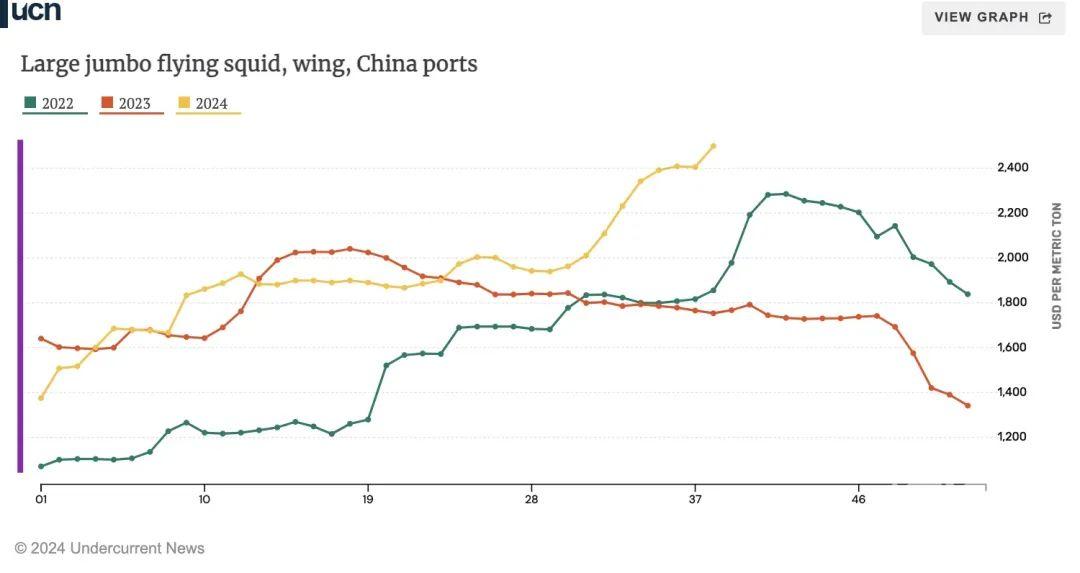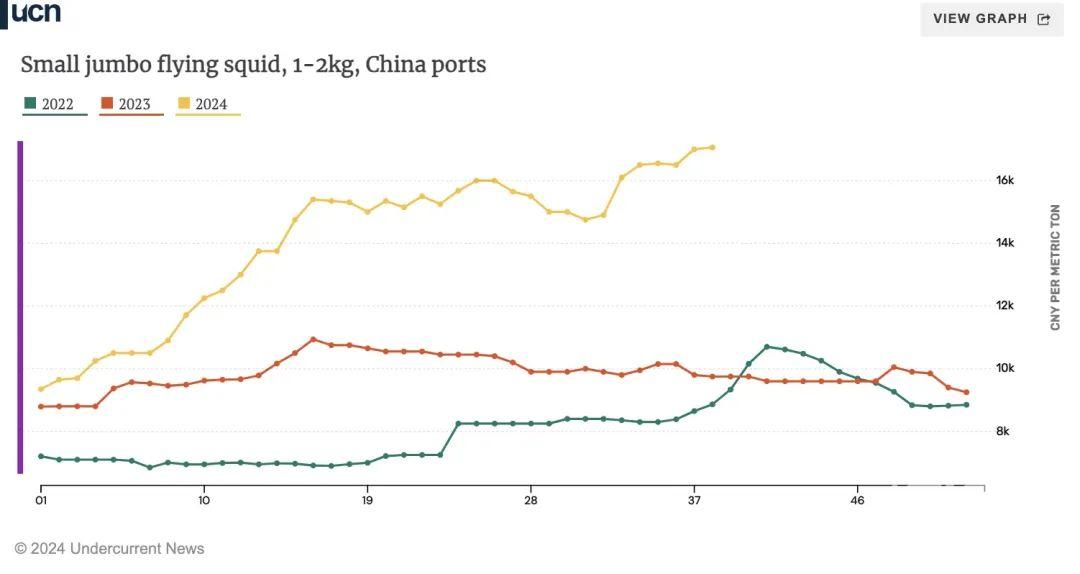Production of Giant Squid (inline) Fall Sharply
Peruvian officials have attributed the decline in squid production to climate problems rather than illegal fishing.
Last year, the giant squid fishery in Peru's EEZ(Exclusive Economic Zone) had a historic harvest, and this year production has fallen so sharply that domestic prices in Peru have risen to as high as PEN 24/kg ($6.36/kg), causing processors to shy away from even acquiring the raw material.
While Peruvian fishermen have blamed Chinese vessels outside the EEZ for the drop in production, Peru's Ministry of Production has officially rejected this claim and blamed the squid crisis on climatic conditions, particularly the effects of the El Niño phenomenon.

 Peruvian television reports that the drop in production has exacerbated the country's food security crisis, as squid is an important source of protein for many local residents, and that many consumers can no longer afford to eat the expensive squid.
Peruvian television reports that the drop in production has exacerbated the country's food security crisis, as squid is an important source of protein for many local residents, and that many consumers can no longer afford to eat the expensive squid.
Dario Alvites, general manager of Peruvian aquaculture company Perupez, told UCN: ‘The scarcity of Peruvian squid has become mainstream news on TV, and now the production is so low and expensive that there are no factories that can process it because it's too expensive. A while ago the price was at $5-6/kg and was only consumed within Peru, yesterday the price went up to $6.40/kg.’
According to Alvites, the Peruvian Institute of Marine Research (Imarpe) has not been out to sea for four years to research, so no one knows about the structure of the fish and sexual maturity. Chinese fishing boats outside the EEZ mainly catch small-sized squid, none of which may have reproduced yet. At the same time, climatic factors are likely to trap squid food in a specific area, affecting fishing.
‘The Peruvian squid factories are in trouble, since the middle of last year the raw material has not been cheap and the international prices are so low that they are not making much profit. This year the situation is even worse, there is not even any raw material to process. I reckon a few companies are in serious trouble, it's been a bad year, but we've held on. We did some processing of other species, like scallops.’
A spokesman for Peru's Ministry of Production said that their cruise surveys had found no evidence of illegal fishing by foreign vessels in the 200 nautical mile exclusive economic zone, stressing that the decline in squid production was linked to climatic and environmental factors. The squid shortage is expected to ease by December as the ocean environment warms up.
Even so, Peru's National Fisheries Institute (SNI) has disputed the government's claims, criticising it for failing to enforce existing regulations, such as requiring foreign vessels to use satellite tracking systems.SNI President Alfonso Miranda said, ‘Peruvian authorities claim that foreign fishing vessels are not fishing illegally, yet dozens of our fishermen say they have seen them with their own eyes . I am more detailed then the fishermen who are at sea every day and who are experiencing the worst crisis in almost 30 years. If control measures are not taken, this fishery resource that creates jobs for human consumption will be paralysed.’
From UCN UNDERCURRENTNEES






